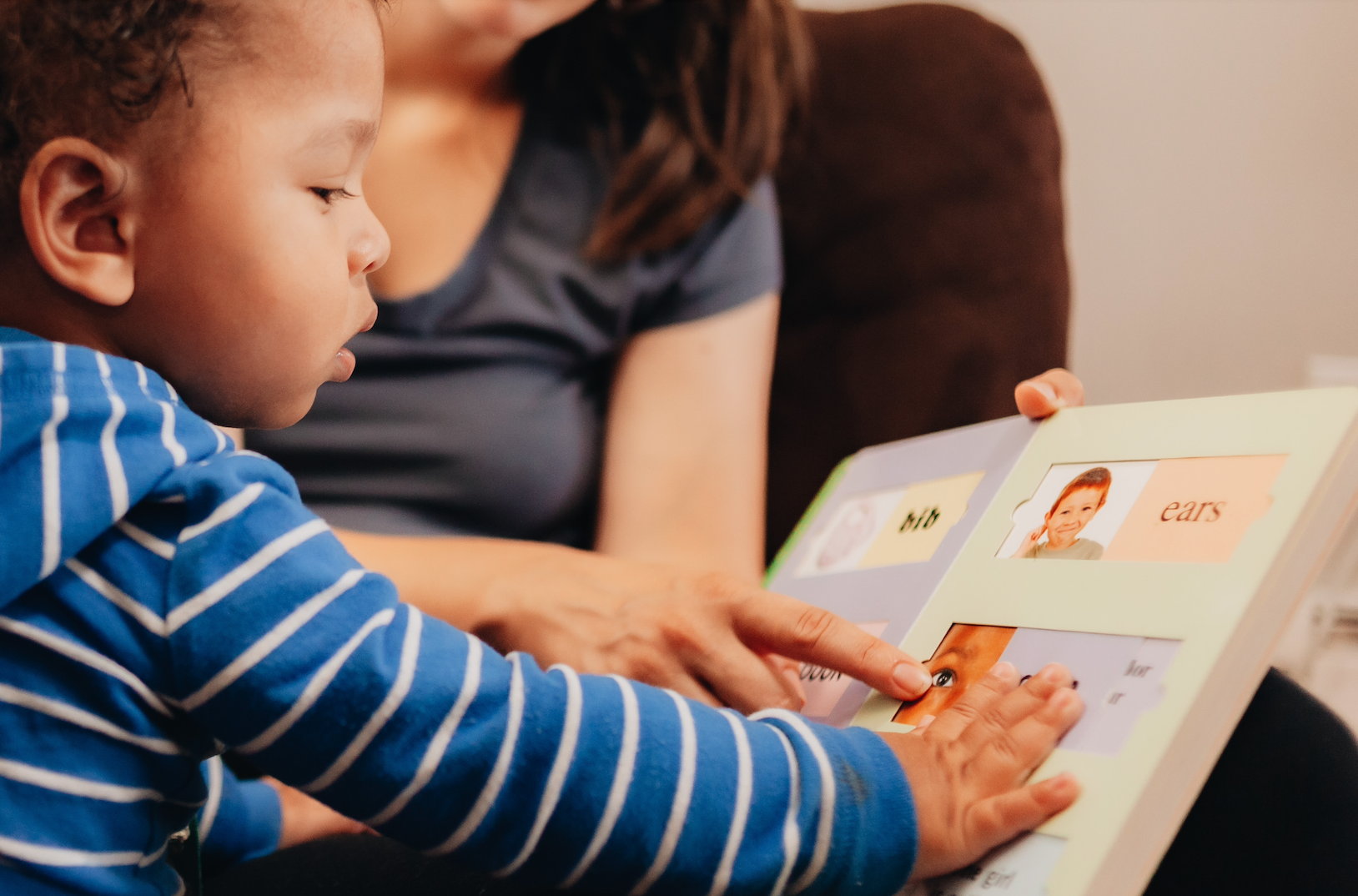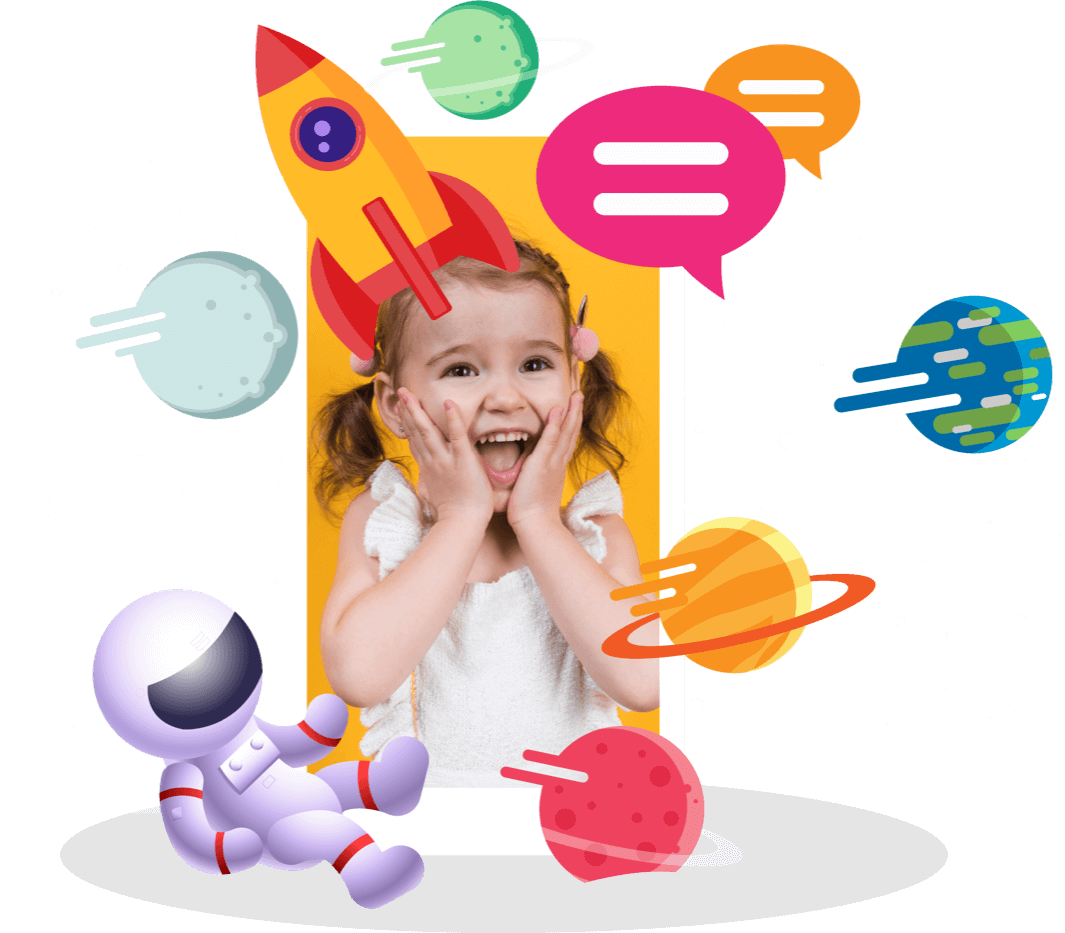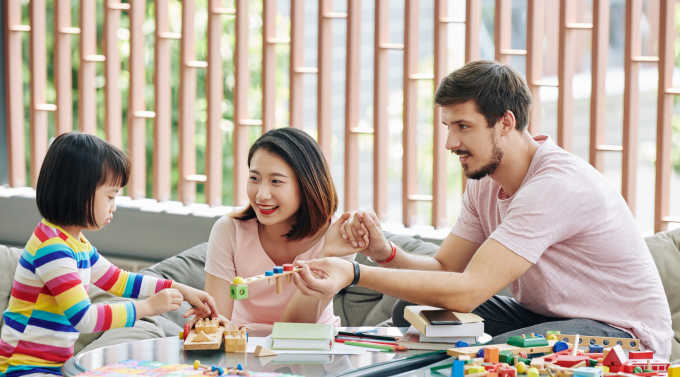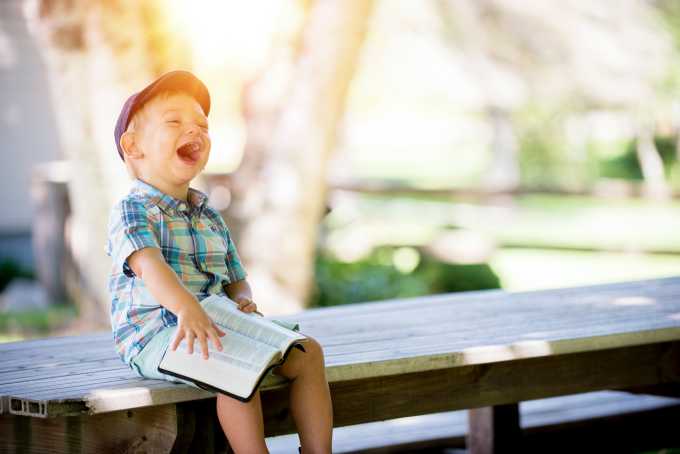Every parent looks forward to the sounds their babies make, starting from birth to their toddler years. The excitement and happiness they feel when they hear the first words from their baby cannot be described. We have gathered some information on baby babbling and language milestones.
Baby Babbling
Babbling tells a lot to a parent about their children. Even lack of it says something. After a baby is born, around week six, major changes start happening.
The biggest milestone around this time the child reaches is the start of the coos and baby babble. During this time, the baby will try to communicate much more, interacting with the parent more when they speak to the child. The baby will coo and make gurgling sounds by the age of 2 months. They will also smile and laugh, imitating others around them.
Through babbling, they will develop a language of their own. They will have specific cries for different things. If they want milk, they will cry a certain way, or they will cry another way for a nap. Cooing and babbling will then turn into using their voices more actively and deliberately.
The baby will then incorporate hand and arm movements into their babbling and cooing. This pre-speech is one of the steps for the child to develop speech and language skills. Baby babble is a significant milestone where the baby produces inarticulate sounds. This means that they are one step closer to real speech.
Come along with 200k+ families!
Let's communicate better!
Download for Free.
Starting with cooing and babbling, babies then start to make short sounds. These short sounds eventually turn into words and phrases, and babies then learn how to communicate with language. Uttering first words has a special place in every parent’s heart. As humans, we are the only being with this capacity to communicate through language.
Language Development Milestones: Babies Speech Development
Speech and language milestones are certain states of development for language and speech that mark the success of the child. They include both receptive language, meaning hearing and understanding, and expressive language, meaning speech.
Milestone for developing both receptive and expressive language skills means that in addition to the child being able to both make sounds and words, they also need to be able to hear and understand what is being said.
The most important for parents and caregivers to remember regarding language development milestones is that every baby develops differently. Not all babies will hit the same milestone at the same time. These milestones are just an approximation as to what most babies develop language skills.
The following are some of the major milestones babies reach at certain ages. However, this is a rough guide, and if your child doesn’t reach them at the specified time, it doesn’t mean that your child is suffering from delayed speech or other conditions.
Cooing
Around six to eight weeks of age, cooing is the first sound babies produce in addition to crying.
Laughing
This is a great indicator that the baby is able to follow people and things in their world. Around week 16 usually babies laugh in response to what is happening around them. During this time, babies also cry in different ways to indicate different wants or needs, such as hunger or sleep. They also copy the sounds they hear.
Babbling
Around months 6 to 9 , babies use certain syllables that don’t have any specific meaning repeatedly. This is called babbling. In time, the babbling turns into baby jargon. This is also called nonsense speech. The sounds they repeat can vary, but it generally sounds like ”mamamama” or ”bababababa” Around this time, between month 6 to 11, babies also understand what ”no” means. They can also copy the sounds and the gestures of others around them.
First word
Usually, between month 10 to 15, the baby utters their first word. They can say ”mama” and ”dada”. They will also be able to follow simple and clear instructions. Babies will also try to say the words that their parents or others around them say.
It is important to remember that the first words uttered will not be perfect. That is to be expected. Sometimes consonants are easier to produce, so your baby may say ”mama” first rather than ”dada”. Because the ”m” sound made with the lips is easier to produce compared to the ”d” sound, which is made using the tongue and the roof of the mouth.
Also, the word may not be complete or even specifically refer to the item itself. The baby can say ”pa” to indicate that they want to play. They may not even understand completely what they are trying to say. Babies will see the reaction they get once they utter the word. This is how they start to make connections. When they say ”dada” and their dad comes, this will help them understand what to call their father to get their attention.

How Can Parents Help with Speech Development?
A study showed that baby talking to your baby is key to babies learning language. It has evolutionary roots. It sure is a cute way to communicate with your child. There are some ways to encourage your baby to develop their language.
-
Communication is key: Talk to your baby, or even sing. Make it a conversation. Ask them a question, or answer questions as though they asked one. This may make you feel weird like you are talking to yourself, but it is a great way to encourage baby speech development. Include gestures and movement also and see if your child is following your lead.
-
Imitate your baby: This fun exercise will encourage your baby to make more noise. This will be the start of conversations for them. Imitate their babbling sounds and see if you can establish a ”conversation”.
-
Be close: While you are interacting with your child, hold them close. Get near to their face when you are talking to each other. This will help them see you and your gestures clearly.
-
Talk about life: This doesn’t have to include heavy stuff. Even if you are walking around the house or running errands, talk to your baby and describe what you are doing. The baby will be listening and this regular beat of the conversation will encourage them to turn their babbles into words.
-
Singing and reading: Talking about things in a singsong voice will make it more interesting for the baby to pick up on it. You can also read a book that is appropriate for the age of the baby. You can name the pictures in the book while you are naming them to encourage the understanding of the relation.
As we mentioned before, babies develop at different rates and they may reach milestones at different times. However, if you feel like your child is not reaching a certain milestone, you may want to consult your child’s pediatrician. Also during checkups, talk about your concerns regarding your baby’s language development. Remember that this is not a race, but be sure to keep an eye out for the milestones.
Last Updated: 23 December 2022





